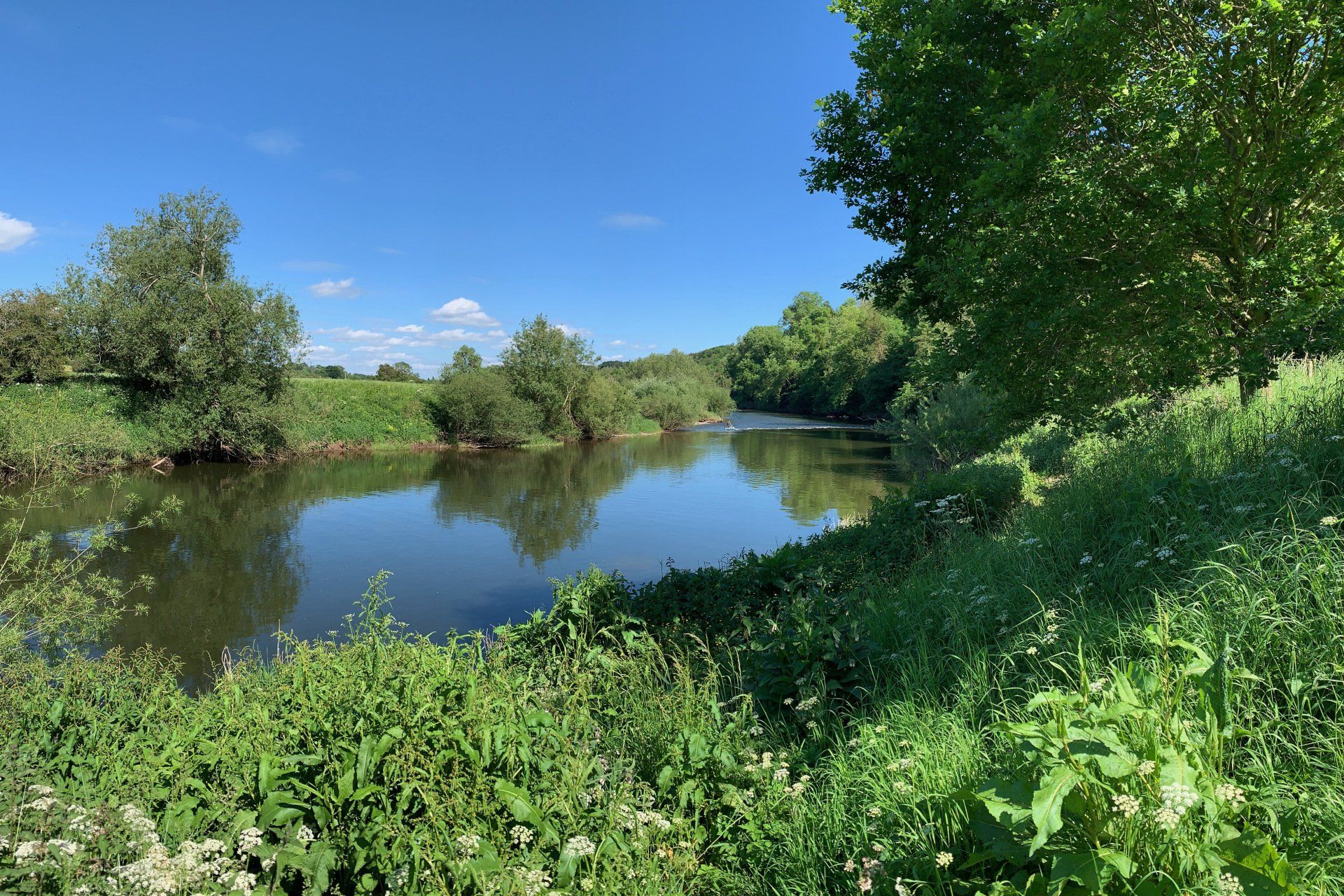Message of Abbot Paul - Wednesday 21st July
Message for Wednesday, 21st July 2021 from Fr Paul
I hope you’re enjoying the hot weather. Most people seem to be finding it too hot for comfort and are beginning complain. Intense heat is never particularly pleasant in Herefordshire because of the humidity and the lack of even a light breeze. Dogs with thick coats suffer most of all, so it’s important to walk them in the shade or in the early morning. At the moment, our best walk is before 6 o’clock, accompanied by wonderful birdsong and the bickering of squirrels. Few rabbits at present, but an army of squirrels and, of course, the deer, who roam freely at night. It amazes me to see how tame they are and how friendly towards Toby, who is a very gentle and hospitable dog. He always goes out to greet them late at night, just before bedtime.
Today’s Gospel passage from Matthew, (Mt 13: 1-9), sees Jesus preaching from a boat on the lake, reminding us that the Church is called the Barque of Peter and that the main body of a church building is called the nave, both words for boat or ship. “Jesus left the house and sat by the lakeside, but such large crowds gathered round him that he got into a boat and sat there. The people all stood on the beach, and he told them many things in parables.” Jesus uses a boat, probably a small fishing vessel, as a pulpit. It must have been a powerful sight, Jesus on the boat a few metres out to sea and the crowds along the strand, listening to his word. Perhaps the calm water served as an acoustic aid. From this symbolic cathedra Jesus begins to teach the crowds, using parables drawn from everyday life, stories his hearers would understand, as they spoke of the world in which they lived. Today we usually have to explain the parables, because that primitive agricultural world is no longer part of peoples’ experience in the UK. When I lived in Peru, it was very different. Happy memories!
“Imagine a sower going out to sow. As he sowed, some seeds fell on the edge of the path, and the birds came and ate them up. Others fell on patches of rock where they found little soil and sprang up straight away, because there was no depth of earth; but as soon as the sun came up, they were scorched and, not having any roots, they withered away. Others fell among thorns, and the thorns grew up and choked them. Others fell on rich soil and produced their crop, some a hundredfold, some sixty, some thirty. Listen, anyone who has ears!” Jesus begins with the parable of the sower, well-known to us all. Jesus was a great storyteller. As you read the parable, you can imagine the crowd mesmerised before him, taking in every word and trying to work out the deeper meaning of what he was saying. Jesus talks of the sower, the seed and the soil: it’s a parable with three subjects, not just one. Three lots of seed fall in the wrong place; not the fault of the seed. The rest falls in good soil, but even then, we find three possible results; again, not the fault of the seed. Likewise, the soil can hardly transplant itself from one part of the field to another; so, not the fault of the soil. The problem with parables is that if you try to work them out, they don’t really add up. What matters is that we see in the story that Jesus is telling an important truth, namely, that it is all in God’s hands and God is in Christ, to quote St Paul, reconciling the world to himself. Jesus is sent by the Father to sow the word that reveals the will of God and bestows the grace of the Spirit to do his will. It won’t happen to perfection in all of us the first time round, let alone every time, but that seed is being sown constantly and our day will come. Don’t despair!










